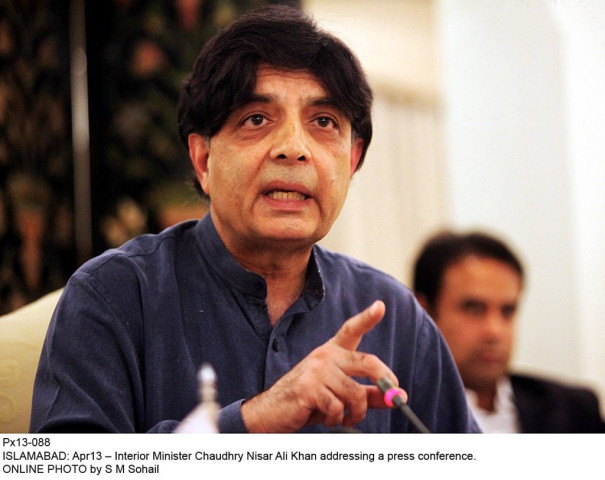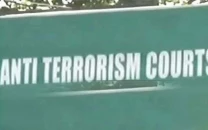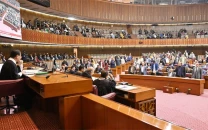Nisar wants RFIDs to help tackle capital’s traffic congestion
Directs traffic police to use RFID technology at entry and exit points and connect it to the Safe City project

Interior Minister Chaudhry Nisar. PHOTO: ONLINE/FILE
Moreover, it was decided to add additional lanes, subject to need and land availability, to all roads leading and from the capital to ease congestion at terminal points.
During a high-level meeting chaired by Nisar at the Interior Ministry, the minister directed that a RFID barrier should be set up at all entry and exit points of Islamabad by May this year. The idea being that the system would enable smooth entry and exit for commuters while ensuring enhanced security for the city.
He directed the National Database and Regulatory Authority (NADRA) chairman to dovetail the RFID system with facial recognition technology to improve security.
He said that RFID tag system, with a distinct colour, would save commuters from the hassles of frequent security checks at various checkpoints and would enable the Islamabad Capital Territory (ICT) Police to ensure optimum utilisation of its resources.
The minister gave NADRA and ICT administration two weeks to work out the modalities and calculation the estimated cost for issuing RFID tags to the regular commuters. Moreover, ICT Police, Traffic Police and NADRA were told to devise a mechanism to optimally utilise the 1,950 cameras installed across the city under the Safe City project for crime and traffic management.
Addressing the meeting, Nisar expressed dissatisfaction over the current state of traffic management on the main highways, especially on roads linking the twin cities such as the Express Highway, Kashmir Road and the Murree road.
The minister observed that despite tall claims and rosy presentations, little improvement had been witnessed on the ground in the traffic management system with citizens continuing to face logjams during peak hours.
Published in The Express Tribune, April 7th, 2017.



















COMMENTS
Comments are moderated and generally will be posted if they are on-topic and not abusive.
For more information, please see our Comments FAQ